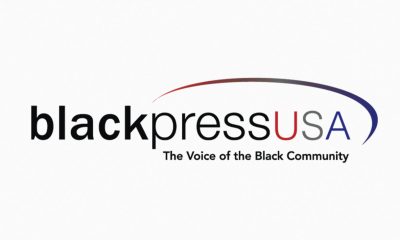Government
Durkan Signs Executive Order Addressing Affordable Housing
THE SEATTLE MEDIUM — Seattle Mayor Jenny Durkan signed an Executive Order to help create a more affordable Seattle.
By The Seattle Medium
This week, Seattle Mayor Jenny Durkan signed an Executive Order to help create a more affordable Seattle, combat residential displacement in neighborhoods across Seattle, and create more affordable low- and middle-income housing. Read the full Executive Order here.
“To help create a city of the future, we must work together to protect against gentrification and displacement and make it possible for families to stay in Seattle,” said Durkan. “As Seattle has grown, we have seen far too many communities of color pushed out of their homes in Rainier Beach, the Central District, Beacon Hill, and Chinatown-International District. With this Executive Order, we are refocusing our work on strategies to prevent displacement and gentrification. It begins with community, and we will continue our work together to develop a holistic response so we can make a more affordable future real for families across Seattle.”
According to Durkan, the City has continued its commitment to increasing affordable housing across Seattle, including in neighborhoods at high risk of displacement, by leveraging more than $710 million to build 3,600 new, low-income, affordable homes by 2022. In addition, the City Council is expected to pass, and the City will begin implementation of Mandatory Housing Affordability (MHA), which will provide 6,000 affordable homes over the next 10 years.
This Executive Order directs City departments to develop and implement strategies to further affordability and mitigate residential displacement, particularly in neighborhoods with communities at high risk of displacement. The Executive Order focuses on four key areas:
- Creating and supporting several policies to further address displacement including:
- The creation of Community Preference for affordable housing units coming online.
- Development of continued financing for property acquisition and preservation.
- Expansion of the City’s home repair program for low income homeowners.
- Monitoring of Mandatory Housing Affordability (MHA) requirements including MHA performance projects.
- Leveraging new community driven affordable housing and commercial projects in Seattle’s newly designated Opportunity Zones
- Recommendations from the City’s Affordable Middle-Income Housing Advisory Council regarding middle income housing strategies
- Development of legislation to continue the Multi-Family Tax Exemption program, which expires in 2019.
- New affordability and housing online tools to connect individuals and families to City of Seattle benefit programs and housing.
- Advocacy at the Washington State Legislature for additional resources and tools for anti-displacement efforts and more affordable housing.
- Support of the City’s Equitable Development Initiative, which invests in Seattle’s existing community members and businesses in high displacement risk neighborhoods.
- Creating a Citywide cross-departmental workplan to look comprehensively at residential anti-displacement efforts, which include regulations, tenant protections, incentives, and funding can work together to increase affordability and mitigate displacement.
As a first step, the Executive Order directs the Office of Housing to establish a Community Preference policy, which will allow City-funded housing developers to prioritize access to new affordable housing for residents in neighborhoods that have experienced high displacement on a case-by-case basis. The Community Preference policy is in part a response to a resounding call from community-based organizations – the need for increased access to affordable housing built within their neighborhoods.
“I want to thank community members in the Chinatown/International District. It was they, during the 2017 deliberations to pass MHA in the Chinatown/International District, who first asked that the City Council work with the Executive to allow housing providers to prioritize renting to members of displaced communities,” said Councilmember Lisa Herbold. “I want to also thank Mayor Durkan, in her executive order proposing changes to the Housing Levy policies, for her support for a Community Preference policy, in response to Resolution 31754. This type of policy has been utilized in other cities. Done well, this policy can be an additional tool towards ensuring that the people who make our city work and keep it strong and diverse are able to live in our city.”
This article originally appeared in The Seattle Medium.
Activism
Oakland Post: Week of November 26 – December 2, 2025
The printed Weekly Edition of the Oakland Post: Week of November 26 – December 2, 2025

To enlarge your view of this issue, use the slider, magnifying glass icon or full page icon in the lower right corner of the browser window.
Activism
Oakland Post: Week of November 19 – 25, 2025
The printed Weekly Edition of the Oakland Post: Week of November 19 – 25, 2025

To enlarge your view of this issue, use the slider, magnifying glass icon or full page icon in the lower right corner of the browser window.
Activism
IN MEMORIAM: William ‘Bill’ Patterson, 94
Bill devoted his life to public service and education. In 1971, he became the founding director for the Peralta Community College Foundation, he also became an administrator for Oakland Parks and Recreation overseeing 23 recreation centers, the Oakland Zoo, Children’s Fairyland, Lake Merritt, and the Henry J. Kaiser Convention Center.

William “Bill” Patterson, 94, of Little Rock, Arkansas, passed away peacefully on October 21, 2025, at his home in Oakland, CA. He was born on May 19, 1931, to Marie Childress Patterson and William Benjamin Patterson in Little Rock, Arkansas. He graduated from Dunbar High School and traveled to Oakland, California, in 1948. William Patterson graduated from San Francisco State University, earning both graduate and undergraduate degrees. He married Euradell “Dell” Patterson in 1961. Bill lovingly took care of his wife, Dell, until she died in 2020.
Bill devoted his life to public service and education. In 1971, he became the founding director for the Peralta Community College Foundation, he also became an administrator for Oakland Parks and Recreation overseeing 23 recreation centers, the Oakland Zoo, Children’s Fairyland, Lake Merritt, and the Henry J. Kaiser Convention Center.
He served on the boards of Oakland’s Urban Strategies Council, the Oakland Public Ethics Commission, and the Oakland Workforce Development Board.
He was a three-term president of the Oakland branch of the NAACP.
Bill was initiated in the Gamma Alpha chapter of Kappa Alpha Psi Fraternity.
In 1997 Bill was appointed to the East Bay Utility District Board of Directors. William Patterson was the first African American Board President and served the board for 27 years.
Bill’s impact reached far beyond his various important and impactful positions.
Bill mentored politicians, athletes and young people. Among those he mentored and advised are legends Joe Morgan, Bill Russell, Frank Robinson, Curt Flood, and Lionel Wilson to name a few.
He is survived by his son, William David Patterson, and one sister, Sarah Ann Strickland, and a host of other family members and friends.
A celebration of life service will take place at Henry J. Kaiser Convention Center (Calvin Simmons Theater) on November 21, 2025, at 10 AM.
His services are being livestreamed at: https://www.facebook.com/events/1250167107131991/
In lieu of flowers, donations can be made to the Euradell and William Patterson scholarship fund TBA.

-

 Activism3 weeks ago
Activism3 weeks agoOakland Post: Week of November 12 – 18, 2025
-

 Activism4 weeks ago
Activism4 weeks agoOakland Post: Week of November 5 – 11, 2025
-

 Activism2 weeks ago
Activism2 weeks agoIN MEMORIAM: William ‘Bill’ Patterson, 94
-

 Activism3 weeks ago
Activism3 weeks agoHow Charles R. Drew University Navigated More Than $20 Million in Fed Cuts – Still Prioritizing Students and Community Health
-

 Bay Area3 weeks ago
Bay Area3 weeks agoNo Justice in the Justice System
-

 #NNPA BlackPress3 weeks ago
#NNPA BlackPress3 weeks agoThe Perfumed Hand of Hypocrisy: Trump Hosted Former Terror Suspect While America Condemns a Muslim Mayor
-

 #NNPA BlackPress2 weeks ago
#NNPA BlackPress2 weeks agoTrump’s Death Threat Rhetoric Sends Nation into Crisis
-

 #NNPA BlackPress4 weeks ago
#NNPA BlackPress4 weeks agoProtecting Pedophiles: The GOP’s Warped Crusade Against Its Own Lies























































